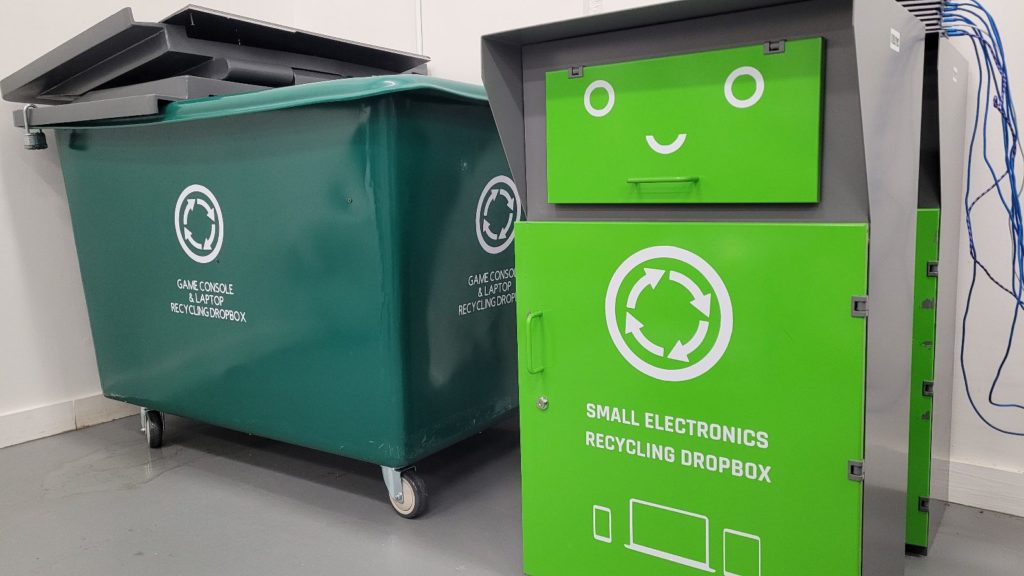Electronic devices have become an essential part of our lives, transforming how we communicate, work, and have fun. However, their rapid advancement also poses a growing problem: electronic waste and its impact on the environment. In this blog post, we will explore how fixing and recycling electronic devices can benefit the environment and discuss actions we can take to reduce the harm caused to our planet.
Reducing E-Waste
When we throw away electronic devices, it generates electronic waste, or e-waste, which harms the environment. However, we can reduce the amount of e-waste in landfills by fixing and recycling our devices.
Fixing a malfunctioning device extends its lifespan, eliminating the need to purchase a new one. Additionally, recycling e-waste allows us to recover valuable materials from old devices, conserving resources and protecting the environment.

Conserving Resources
Electronic devices contain valuable materials like metals, plastics, and chemicals. By fixing and recycling them, we can reuse these materials instead of extracting and producing new ones. This conservation of resources helps prevent environmental damage.
For instance, recycling a ton of smartphones can yield significant amounts of gold, silver, and other precious metals. Reusing these materials reduces the need for further mining, minimizing harm to nature and reducing pollution.
Saving Energy
The production of new electronic devices requires substantial energy consumption. However, by fixing and reusing our devices, we save energy. Repairing and reusing devices eliminate the need for energy-intensive manufacturing processes.
This, in turn, reduces the environmental impact associated with greenhouse gas emissions and pollution. Extending the life of our devices through repair helps decrease overall energy consumption, benefiting the environment.
Recycling e-waste also enables the recovery of energy from devices that are no longer usable, further conserving resources and reducing pollution.
Preventing Pollution
Improper disposal of electronic devices can result in pollution. Devices often contain harmful substances such as lead, mercury, and chemicals. When these substances enter the environment, they can negatively affect plants, animals, and humans.
Fixing and recycling devices ensures that these hazardous materials do not end up in landfills or water sources. Responsible recycling processes safely handle and remove these toxic substances, preventing pollution and safeguarding our planet.
Promoting a Circular Economy
Supporting the repair and recycling of electronic devices contributes to the development of a circular economy. In a circular economy, resources are kept in use for as long as possible. Rather than discarding items, we focus on repair, refurbishment, and recycling. This approach reduces waste and conserves resources.
Repairing and Recycling Electronic Devices
By utilizing repair services and participating in recycling programs, we actively participate in a sustainable cycle where materials are reused and repurposed. This helps protect the environment and fosters a better future.
Fixing and recycling electronic devices have significant environmental benefits. By reducing e-waste, conserving resources, saving energy, preventing pollution, and promoting a circular economy, we can make a positive impact on the environment.
As responsible consumers, let’s prioritize fixing and recycling, making choices that protect our planet and contribute to a more sustainable future.
